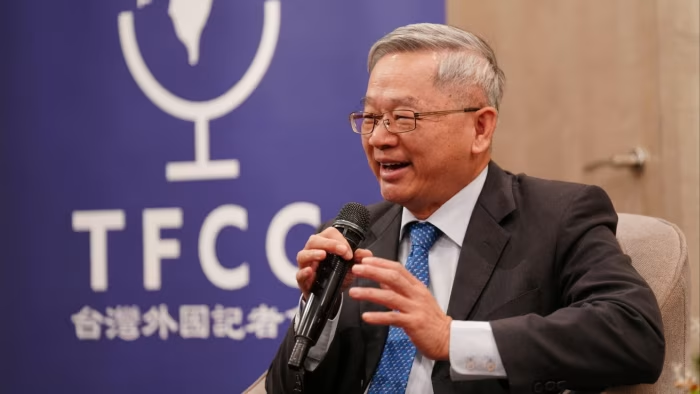Unlock the Editor’s Digest for free
Roula Khalaf, Editor of the FT, selects her favourite stories in this weekly newsletter.
The US will not “punish” Taiwan’s world-leading semiconductor sector with high tariffs, a minister has said, adding that Taipei would help the US learn from the industrial model that turned it into a chipmaking powerhouse.
“They understand that punishing Taiwan is not in their interests,” Wu Cheng-wen, who oversees Taiwan’s National Science and Technology Council told the Financial Times, adding that Taipei and Washington had reached a “consensus” that Taiwan would support the development of the US chip industry in exchange for tariff relief.
The comments from Wu come as Taiwan is seeking to finalise a tariff deal with the US, and is awaiting the conclusion of a US national security investigation that could result in levies on its crucial semiconductor sector, led by Taiwan Semiconductor Manufacturing Company.
US President Donald Trump has imposed 20 per cent tariffs on Taiwan’s exports, lower than the 32 per cent “liberation day” rate but 5 percentage points higher than on Japan or South Korea.
The chip sector is exempt from those levies, but a separate section 232 national security review could apply tariffs to semiconductors as well as the tools and components involved in their production and a wide range of consumer electronics.
Trump’s administration has also pressed Taiwan to relocate more production to the US. In September, US commerce secretary Howard Lutnick suggested the countries could split production “50:50” — an idea Taipei has rejected.
In trade negotiations with the Trump administration, Taiwan has offered to share its experience in building industrial science parks, which have underpinned the success of its chip sector.
“Of course, there’s the recipes of how to make the chips, but it’s also about the science park management, attracting companies, integrating academic research with industry,” said Wu, who called Taiwan’s science park system “unique”.
“No other country has done what we have done.”
The parks provide tech manufacturers with cheap land, ready-to-use infrastructure and services such as help with permits, hiring and tax incentives. This streamlined system has helped build an integrated ecosystem in Taiwan that supports efficiency and innovation, in contrast with the US, where new investors need to develop land themselves, often delaying manufacturing.
Taiwanese support for building similar parks in the US was part of the tariff deal the two sides were expected to announce soon, according to two officials familiar with the negotiations.
A US official described the draft agreement as including investment commitments “between those agreed with Japan and those agreed with South Korea”, suggesting Taiwan would commit to investing about $400bn in the US.
“The difference is that in Taiwan’s case, these are not something vague but investments that are being planned or even under way already,” the person said. The US Trade Representative did not respond to a request for comment.
TSMC, which produces about 90 per cent of the world’s advanced semiconductors, has already committed to investing $165bn in Arizona to build a series of chip fabrication and processing plants and a research and development facility.
The two people briefed on the draft bilateral tariff deal said the TSMC commitments would be part of Taiwan’s total investment promises.
Wu, who met US secretary of state Marco Rubio and other senior officials at the Asia-Pacific Economic Cooperation forum in South Korea this month, noted, however, that most of TSMC’s US buyers had global operations, pointing to Google’s data centre in Taiwan as an example.
“It doesn’t make sense to ship the chips to the US and then ship them around the world,” he said.
He also insisted that Taipei was firmly committed to keeping its cutting-edge research and development at home, and would not allow the domestic industry to be “hollowed out”.
The office of the US trade representative did not respond to a request for comment.
Taiwan’s security has long been tied to the global importance of its chip sector, which the government and public believe make the US and other countries more likely to try to prevent or intervene in the event of an attack by China, an idea referred to as the “Silicon Shield”.
“If we move our R&D overseas, it’ll be dangerous for us,” Wu said. “New weapons and defence systems rely on advanced chips.”
But he said the government was looking to diversify its economic model, focusing on areas such as drones, robotics and medical technology, in order to “not rely entirely on semiconductors like now”.
“We need to find a second ‘Silicon Shield’,” Wu said. “I don’t think we will be able to keep this position for much more than five or 10 years.”
